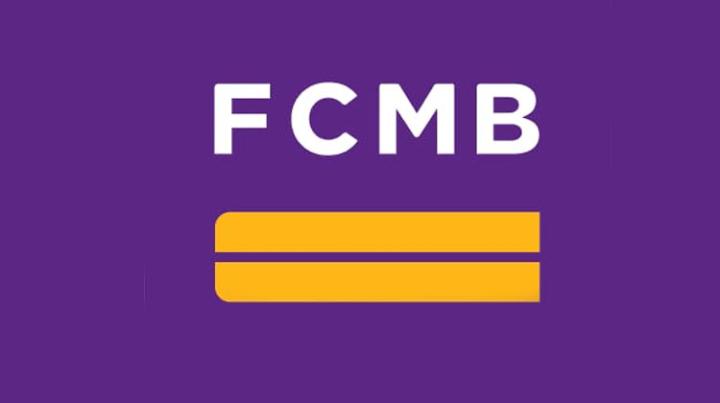First City Monument Bank (FCMB) Group has announced a delay in the release of its financial results for the third quarter of 2025, citing an ongoing interim audit exercise. The development, which was communicated to stakeholders through a regulatory disclosure, has drawn the attention of investors, analysts, and the broader financial market, given the group’s significant role in Nigeria’s banking sector.
The bank explained that the decision to conduct an interim audit was part of its effort to strengthen transparency, improve compliance with regulatory requirements, and ensure accuracy in its financial reporting. According to the statement, the audit process is being carried out to align FCMB’s operations with evolving corporate governance standards in the Nigerian financial services industry.

Interim audits, while not uncommon in the banking sector, often involve rigorous reviews of a company’s financial records, internal control systems, and risk management frameworks. FCMB emphasized that the delay in publishing its Q3 2025 results should not be misconstrued as an indication of financial distress. Instead, the audit exercise is aimed at assuring stakeholders that the bank’s financial reporting remains credible and robust.
Despite the delay, FCMB reassured shareholders and investors that the group continues to perform strongly in key business areas. Management highlighted that growth has been recorded in deposits, loan disbursements, and digital banking services, underscoring its resilience amid a challenging economic environment marked by high inflation, currency volatility, and fluctuating interest rates.
Analysts have noted that while such delays may temporarily unsettle investor confidence, they can also serve as a positive signal of management’s commitment to accountability. By conducting an interim audit before releasing its results, FCMB demonstrates an approach that prioritizes accuracy over speed, which could strengthen long-term trust among stakeholders.
The Nigerian Exchange (NGX) has acknowledged the bank’s disclosure and confirmed that FCMB remains compliant with the required notification procedures for listed companies. Regulators, including the Central Bank of Nigeria (CBN), have in recent months intensified scrutiny of financial institutions, urging them to adopt best practices in corporate governance and reporting.
For investors, the temporary delay raises questions about the bank’s near-term financial outlook. However, financial market observers point out that FCMB has consistently delivered stable earnings in recent years, buoyed by strategic investments in digital innovation, retail banking, and small and medium-sized enterprise (SME) financing. These strengths are expected to reflect positively once the interim audit is concluded and results are released.
In addition, FCMB has been actively diversifying its portfolio beyond traditional banking services. Through subsidiaries in asset management, pension administration, and investment banking, the group has created multiple revenue streams. This diversification has been described by analysts as one of the key drivers of FCMB’s resilience, allowing it to weather economic headwinds more effectively than some peers.
Market watchers also highlight that the timing of the interim audit coincides with a period of broader reforms in Nigeria’s financial services sector. With recapitalization directives recently issued by the CBN, banks are under pressure to strengthen their capital base, enhance operational efficiency, and adopt stronger risk management frameworks. In this context, FCMB’s audit process could be viewed as a proactive step toward aligning with emerging regulatory expectations.
While the bank has not given an exact date for the release of its delayed Q3 results, management assured stakeholders that the audit exercise is nearing completion. Once finalized, the results will be submitted to regulators and made available to the public. FCMB expressed confidence that the audited results will confirm its continued financial strength and progress on key performance indicators.
Investor reactions to the delay have been mixed. Some shareholders expressed concerns about the lack of timely financial information, which they argue is essential for making investment decisions. Others, however, welcomed the move, noting that greater scrutiny through audits could ultimately enhance the credibility of the bank’s financial reporting.
The Lagos Chamber of Commerce and Industry (LCCI) has weighed in, stating that while timeliness is crucial in financial disclosures, credibility and transparency should never be compromised. The chamber encouraged other financial institutions to adopt similar measures if it would strengthen investor confidence in the long run.
Looking ahead, the conclusion of the interim audit and the subsequent release of FCMB’s results will be closely monitored by stakeholders. Analysts predict that the figures, once available, will reflect the broader dynamics in Nigeria’s banking sector, including the impact of interest rate adjustments, exchange rate reforms, and rising demand for digital banking services.
For now, FCMB’s focus remains on completing its interim audit process and reassuring investors of its financial stability. The bank has reiterated its long-term vision of building a strong, diversified financial services group that delivers sustainable value to customers, shareholders, and the Nigerian economy.
As Nigeria’s economic landscape continues to evolve, the banking industry is likely to face increasing demands for transparency and accountability. FCMB’s decision to delay its results in favor of an audit illustrates how financial institutions are adapting to these new realities, balancing regulatory compliance with market expectations.
Support InfoStride News' Credible Journalism: Only credible journalism can guarantee a fair, accountable and transparent society, including democracy and government. It involves a lot of efforts and money. We need your support. Click here to Donate
